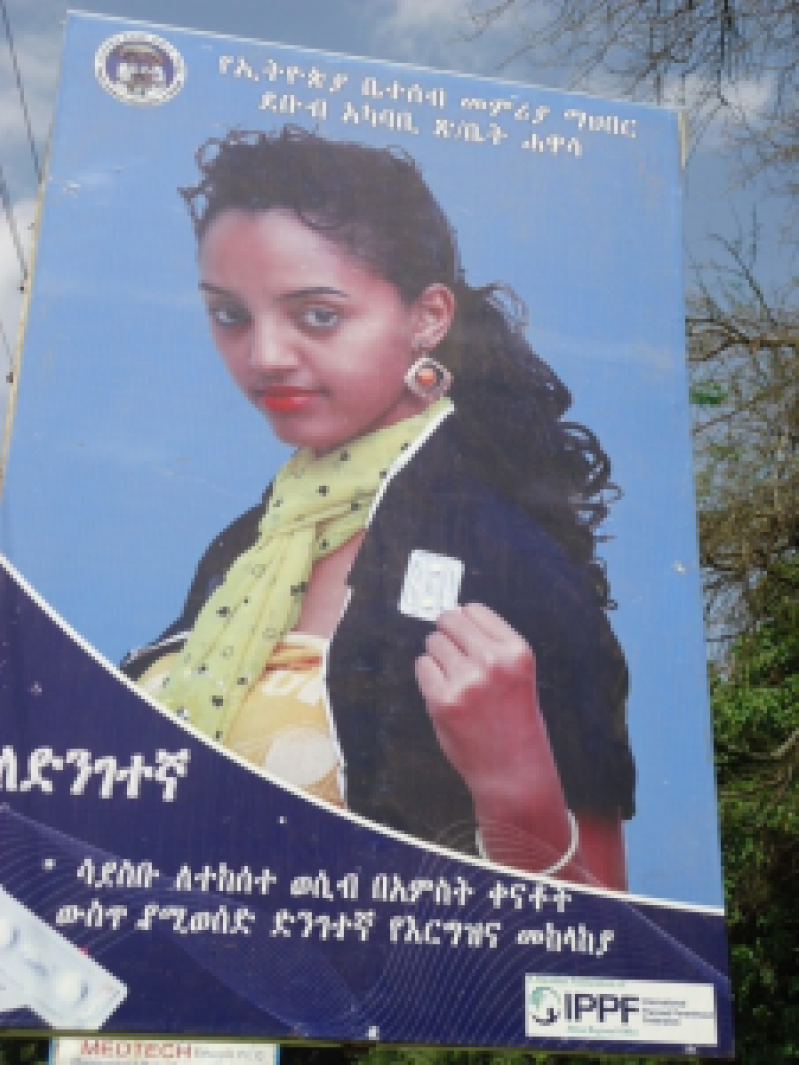
The International Planned Parenthood Federation (IPPF) approved a billboard featuring a well-dressed Ethiopian woman holding a morning-after pill, encouraging the impoverished multitudes of women in that country to use their product. The advertisement was for Levonorgestrel – also known as Plan B – which can abort a baby by blocking it from being implanted into its mother’s womb.
Ethiopia is one of the world’s most impoverished countries, with over 91.7 million citizens. According to World Bank data, more than 30% of its population was living in poverty in 2011. The average Ethiopian family has six to seven members, and because hospitals and medical professionals are scarce in the country, most women have their children at home and face a higher risk of having fatal birth-related complications.
The advertisement for the morning-after pill targets many who live in dire poverty and desire to have a higher socioeconomic status. It suggests that those who forego child-bearing have a greater chance at prosperity, and that having a baby would diminish a woman’s livelihood. The billboard says that the pill is an “emergency contraceptive” that allows women to have unprotected sex without bearing the risk of having an unexpected pregnancy.
The makers of Plan B say that Levonorgestrel does not terminate an existing pregnancy because it can keep a woman’s egg from becoming fertilized; however, the drug can also abort a fertilized egg by preventing it from being implanted into the uterus. The billboard has the International Planned Parenthood Federation’s stamp of approval on it, an organization which claims to support women’s health. The Planned Parenthood website says that the PPFA “focuses on reducing maternal death and disability by preventing unintended pregnancies;” however, it ensures the demise of infants who are aborted. The organization also trains youth and adults to be “peer health promoters” who promote awareness and provide contraceptives in Ethiopian communities.






